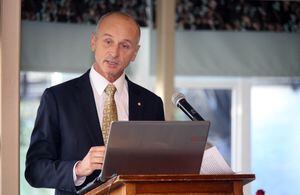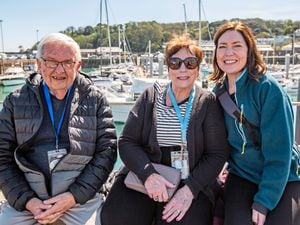Two-school plan scores minus 40% in IoD survey
THE debate around education has dented Guernsey’s attractiveness as a place to live for families, a survey of business has indicated.

Education was one of the areas included in a survey by the Guernsey Institute of Directors of its members, which was organised to identify priorities for the island’s general election, the date of which has yet to be decided.
The survey was conducted before the coronavirus crisis.
Asked How does education help business?, participants in the survey rated a number of areas in terms of net positive percentage.
Attracts families to Guernsey received a score of minus nine.
In terms of supplying skilled local school leavers and local graduates, both received a positive net score of under 5%.
Delivering staff and training and development was rated as about the 25% net positive mark.
The research also sought to delve more deeply into the role that education played in making the island an attractive place to live.
The fee-paying colleges and state primary schools were about 50% or above net positive.
University funding and state secondary were about 10% net positive.
In terms of support for policies, access to colleges enabled by means-tested bursaries and continued funding support for the fee-paying colleges was above 50% net positive.
Consolidation of state secondary from four to three sites was 16% net positive. Consolidation of state secondary to two schools was minus 40% in terms of the rating.
Stretch Kontelj, vice-chairman of the Guernsey IoD, said that business was sending a clear message amid the turmoil of education policy.
‘It’s a real turn-off for attracting talent onto the island,’ he said.
‘One of the priorities when you do look to bring someone onto the island is the education system for their children and it is a deal-breaker. Clearly, that is the message that business is sending through loud and clear.’
James Ede-Golightly, who heads up the business group’s transport and infrastructure sub group, said: ‘It speaks for itself, that there is a clear area of concern which is the ability to attract people to the island.’
There was also concern around university funding and state secondary based on the findings, he added.





